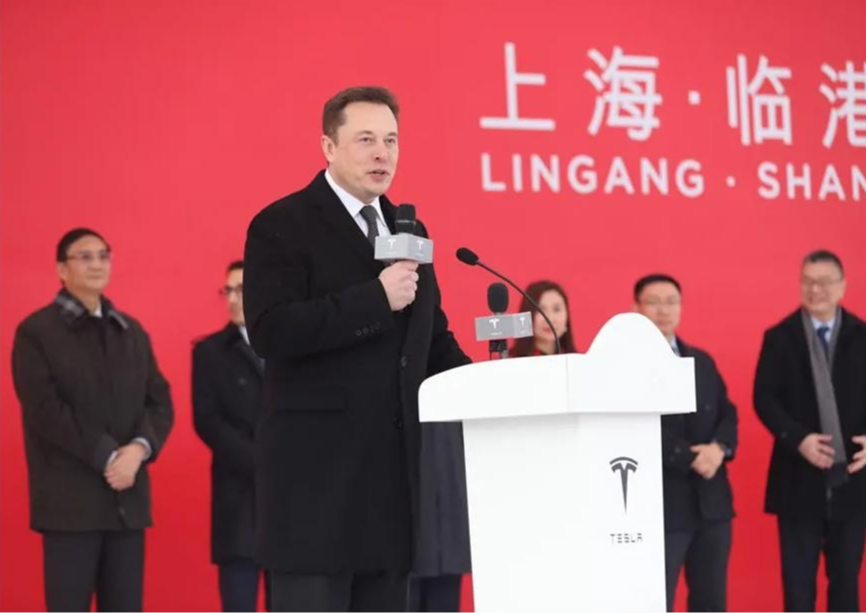
Tesla CEO Elon Musk’s surprise visit to China on 28 April attracted global attention. The fact that Musk ended up in Beijing, a week after postponing his much-anticipated India visit has further added a layer of mystery to the development. Following the visit, the discourse gaining currency both within India and beyond is that “It is a win for Musk and China, but a snub for India.”
However, such a discourse, intentionally or unintentionally, seems to be serving China’s interest well, whose key agenda was to use the visit to make two key political points.
First, to make a statement that China remains the “actual driving force”; the ultimate saviour of Corporate America. No matter how much America’s political elites want to decouple from China, America’s business interests will frustrate such efforts, without China having to fire a shot. Chinese media gloated over how time and again, the Chinese market has come to the rescue of American giants, including Tesla. Various commentaries on the Chinese internet pointed out that five years back, in 2019, when Tesla faced production capacity bottlenecks and was on the verge of bankruptcy, the timely commissioning of the Shanghai Gigafactory not only solved the production capacity problem but also drove Tesla's stock price to soar. Today, when Tesla faces difficulties again—the first-quarter financial report shows that Tesla’s deliveries fell below 400,000 vehicles, revenue went down 9 percent and net income went down 55 percent—the Chinese market has once again came to its rescue. With Musk spending only a day in China, Tesla's stock rose 12 percent the next day, reaching US$ 160 per share and Musk's net worth skyrocketed by 270 billion yuan (an increase of US$ 37.3 billion). Meanwhile, Wall Street capital shorting Tesla—and indirectly the electric vehicle industry chain dominated by China—in the past few months has lost more than 40 billion yuan (around US$ 5 billion) in just four trading days. This is quite a testimony to China’s strength, and the strength of “Made in China”.
Chinese media gloated over how time and again, the Chinese market has come to the rescue of American giants, including Tesla.
Second, China drove home the point that India’s ambition of competing or catching up with China, or of benefitting from the great power competition between China and US (the US or the West’s de-risking, de-Sinicization, China+1 policies) is based on flimsy grounds and can easily be foiled by the charm of the Chinese market. Therefore, India must recognise the gap with China in terms of economy and market size, and give up its competitive attitude towards China. Accordingly, various Chinese observers asserted that “the trip was a slap across the Himalayas”, and that “no matter what Tesla wants to do, China is the key…Tesla can't achieve its ambitious future goals without continued success in the Chinese market…China is a must-have market, and India just a nice-to-have market,”... “no wonder, Musk has given higher priority to his Chinese business over his India plans (implying so will others)”.
However, when seen through the lens of China’s internal debates and discussions, the visit seems to have happened in a very different context and produced quite a complicated outcome.
A lesser-known context to Musk’s China visit
It is now widely known that Tesla's CEO visited Beijing amidst stiff headwinds globally. It has also been reported that Tesla is facing some challenges in the Chinese market as well, where its production and sales have experienced year-on-year declines for two consecutive quarters and it is under particularly heavy competitive pressure.
However, the magnitude of the crisis that Tesla is facing in China only becomes clear when one browses through the Chinese internet. China’s online space is full of anecdotes claiming Tesla’s total “collapse” in the Chinese market—in terms of strategy, management, product innovation and other aspects. For example, as Tesla announced “10 percent global layoffs”, the proportion of layoffs in China went way beyond the 10 percent figure. In fact, in some departments, it reached an astounding 50 percent. Not just that, some Tesla employees in China are reportedly being laid-off without any notice, without any severance compensation, compelling a few to choose the labour arbitration route. The Shanghai factory, meanwhile, has already announced a reduction in production by 30 percent, and production time has been reduced from 6.5 days per week to five days. Tesla has also terminated contracts with all fresh graduates in China.
China’s online space is full of anecdotes claiming Tesla’s total “collapse” in the Chinese market—in terms of strategy, management, product innovation and other aspects.
On the other hand, Tesla is facing serious consumer dissatisfaction in China due to its repeated price adjustments in recent months, causing significant losses to its existing consumers. There are reports of customers of comparatively older versions of Tesla cars being up in arms against the company’s management, some even demanding hefty economic compensations to the tune of US $15,000.
Amidst such churn in the China market, Musk announced his prospective India visit and there were reports of Tesla investing more than US $2 billion in India. Following this, the concern that gripped China’s strategic community was: “Does Musk too want to run away from China?”.
Some Chinese observers believe that it is in response to such developments that the Chinese government made the rare gesture of inviting Musk through the China Council for the Promotion of International Trade and offering an attractive “gift package” allowing Tesla to pass certain data security requirements and the lifting of restrictions on the movement and parking of Tesla vehicles in various places in China (such as government agencies, airports, highways, etc.). A move holding promise of improved sales of Tesla in the Chinese market, which, in turn, can restore investor confidence in the company.
A complicated outcome
The Western media has portrayed Musk’s China visit as “a big win” for Tesla, in terms of obtaining Beijing’s positive response on its key agendas—namely, Full Self-Driving (FSD) cars’ rollout in China and permission/approval to transfer data overseas.
However, within China, the Western media’s repeated emphasis on “transfer of data overseas” courted much suspicion. Some commentators questioned if Musk’s trip was actually a trap, aimed at obtaining “Chinese data”. After all, Tesla remains an American company, and it is difficult to guarantee that the data will not fall into the hands of the US, read one article on the Chinese internet. Tesla’s “Sentinel Mode”, it warned, makes the leaking of data regarding China's topography, large and small streetscape facilities etc., quite a possibility.
Tesla remains an American company, and it is difficult to guarantee that the data will not fall into the hands of the US, read one article on the Chinese internet.
On the other hand, sections within the Chinese strategic community did welcome Tesla’s prospective FSD launch in China, expecting that Tesla’s cutting-edge FSD technology (particularly FSD V12's end-to-end autonomous driving technology) will somehow be made available to Chinese domestic electronic vehicle companies (presently for Tesla in China as well as Chinese new energy vehicles, autonomous driving capabilities remain at L2, that is partially autonomous driving level), which will further promote overall development and upgrading of China's new energy automobile industry. For example, Wang Guoye, Professor at China Agricultural University and Director of the Vehicle Engineering Research Institute of China Agricultural University, pointed out that Tesla’s autonomous driving technology solutions are most likely to be integrated with Huawei’s or other Chinese company’s autonomous driving technology solutions. Taking the argument further, some Chinese observers argued that this technology collaboration between Tesla and China’s domestic EV companies can eventually become a “trump card” for Chinese companies in going overseas, particularly breaking open the European and American market—bypassing all the restrictive measures that have been placed on China in recent months.
Overall, the Chinese stance is clear, i.e., “it will not let Tesla use Chinese data without permission, let alone let it leak out. However, if Tesla seeks true implementation of driverless technology in China and benefits from China’s data advantage, it must have in-depth exchanges with local Chinese companies.” Now, given the intensity of the China-US tech war, it is difficult to believe that the Chinese proposition will find many takers in Washington, which essentially puts Tesla’s future in China in limbo.
To summarise, one can argue that Elon Musk’s surprise visit to China last week has more than what meets the eye. For India, it is important to not let what seems like an information warfare blur its EV vision.
Antara Ghosal Singh is a Fellow at the Strategic Studies Programme at the Observer Research Foundation.
The views expressed above belong to the author(s). ORF research and analyses now available on Telegram! Click here to access our curated content — blogs, longforms and interviews.




 PREV
PREV

.png)
.png)